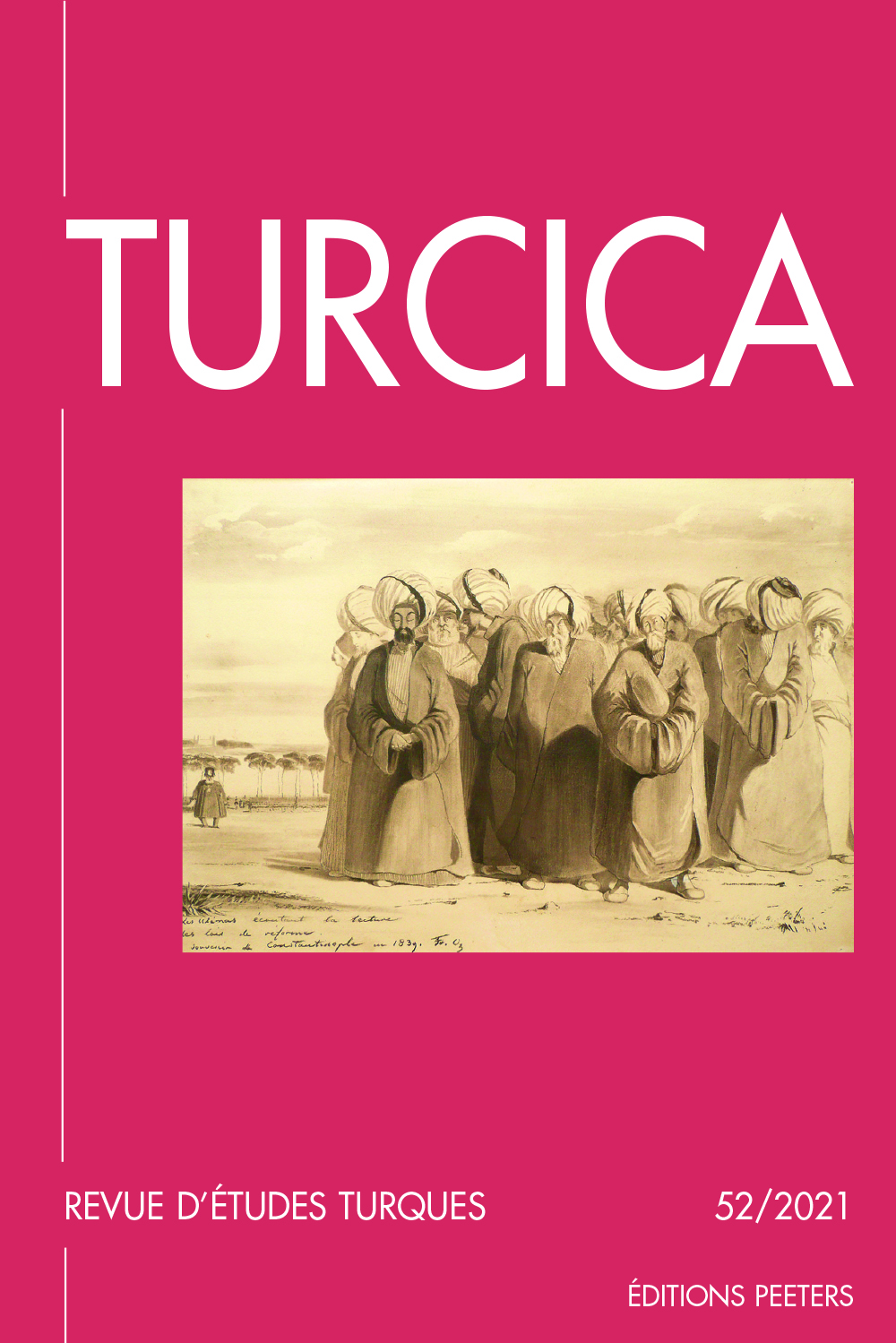 previous article in this issue previous article in this issue | next article in this issue  |

Preview first page |
Document Details : Title: Eloquence in Context Subtitle: Şa'bānzāde Meḥmed Efendi's (d. 1708-1709) Münāẓara-ı Ṭıġ u Ḳalem and 'The People of the Pen' in Late Seventeenth-Century Ottoman Empire Author(s): TUŞALP ATİYAS, Ekin Journal: Turcica Volume: 48 Date: 2017 Pages: 113-155 DOI: 10.2143/TURC.48.0.3237137 Abstract : This article studies a text written in 1683 by the director of finances Bosnavī Meḥmed Şa'bānzāde Efendi (d.1120/1708-1709). In Münāẓara-ı Ṭıġ u Ḳalem (The Altercation of the Sword and the Pen), the people of the pen as a community not only ensure the continuity of the Ottoman state and institutions, but also make intellectual life possible in the Empire through their mastery over rhetoric and literary language. This article seeks to locate the Münāḳara in the literary and historical context of the second half of the seventeenth century. While the text belongs to the longstanding 'the pen versus the sword' tradition, its emphasis on inşā and belāġāt is a product of the seventeenth-century discussions on rhetoric and literary prose. The victory of the penholders at the end of this literary duel, also hints at the intellectual dynamism that the rise of the Ottoman scribal bureaucracy generated in this period. Le présent article analyse un texte rédigé en 1683 par le directeur des finances Bosnavı Meḥmed Şa'bānzāde Efendi (m. 1120/1708-09). Dans la Münāḳara-ı Ṭıġ u Ḳalem (la dispute de l’Épée et de la Plume), la communauté des gens de la Plume non seulement assure la continuité de l’État et des institutions ottomans, mais encore rend une vie intellectuelle possible par sa maîtrise de la rhétorique et de la langue littéraire. L’article s’efforce de replacer la Münāıara dans le contexte littéraire et historique de la seconde moitié du XVIIe siècle. Si le texte appartient à la longue tradition qui oppose la Plume à l’Épée, son insistance sur l’inşā et la belāġāt est un produit des discussions du XVIIe siècle sur la rhétorique et la prose littéraire. La victoire de gens de plume, à l’issue de ce duel littéraire, fait également allusion au dynamisme intellectuel entraîné à l’époque par la croissance de la bureaucratie ottomane. |
 |


